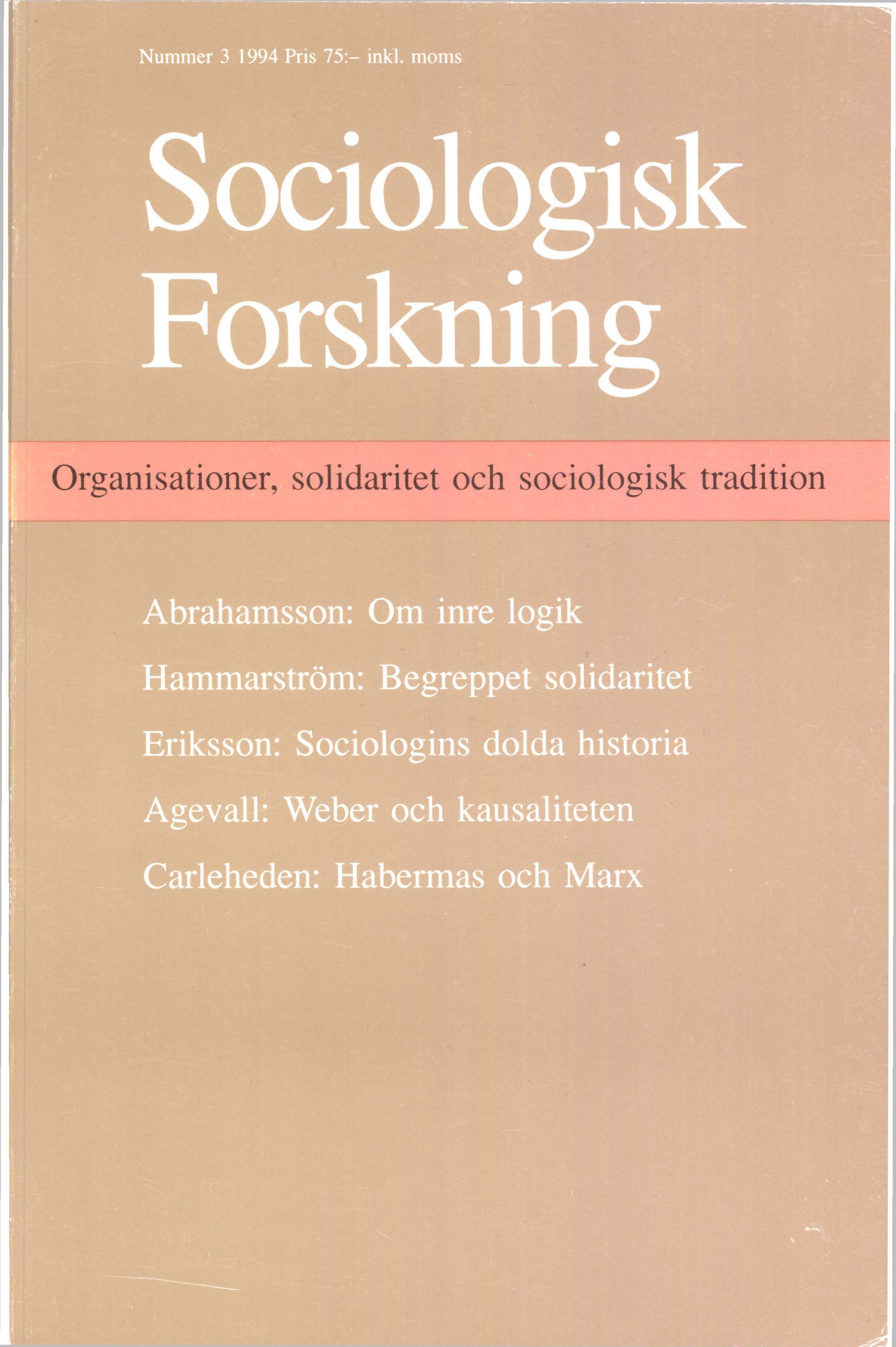Weber, kausaliteten och oändligheten
DOI:
https://doi.org/10.37062/sf.31.18618Abstract
Weber, causality and infinity
While it is widely acknowledged that Max Weber was a neo-kantian of some sort, comparatively little has been done to trace down how this affects other parts of his work. This article argues that Weber’s theory of causality can be viewed as an answer to problems evolving from his neo-kantian framework. The aim of the article becomes twofold. First, to give an exposition of Weber’s theory of causality, and second to use this piece of theory as an example of how parts of Weber’s methodology are designed to solve problems posed by the neo-kantian framework. The neo-kantian framework referred to can be summarized in the theses that (I) reality offers an infinite plenitude, and (II) that there is nothing in reality itself that can present us with its interpretation. Taken together, these theses result in the necessity for the subject to make a selection from the infinite reality. These theses are applied to the problem of selecting causes from the infinite causal chain. In order to solve this problem, Weber takes recourse to the adequate cause theory, a variant of jurisprudential theory founded by Johannes von Kries. The last part of the article gives an exposition of some of the basic characteristics and consequences of adequate cause theory.
Downloads
Publicerad
Referera så här
Nummer
Sektion
Licens
Allt material i Sociologisk Forskning publiceras med omedelbar öppen tillgång (open access), under Creative Commons-licensen CC BY-NC-ND 4.0.
Allt innehåll i tidskriften är fritt tillgängligt utan kostnad och får för icke-kommersiella syften fritt läsas, laddas ned, kopieras, delas, skrivas ut och länkas. Innehållet får dock inte ändras. När innehållet används måste författare och källa anges. Upphovsrätten till innehållet tillhör respektive författare. Inga publiceringsavgifter tas ut.





